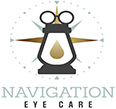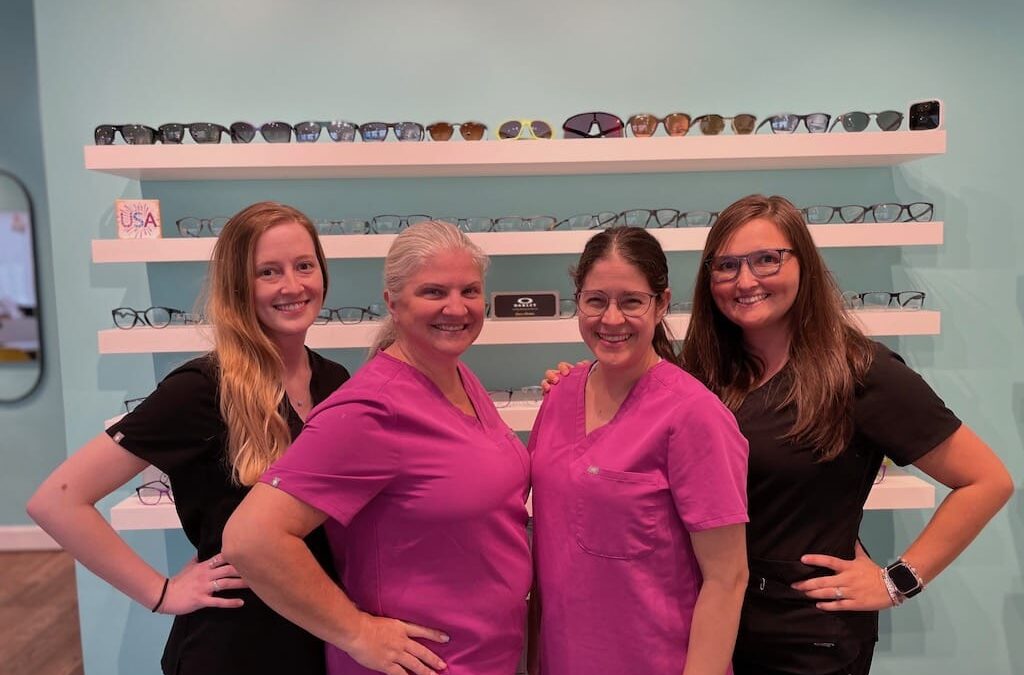Eye Safety First: How to Childproof Your Home to Prevent Eye Injuries
As parents, we go to great lengths to ensure our children are safe in their homes. We install childproof locks, cover electrical outlets, and pad sharp corners. But one area that often gets overlooked is eye safety. Children are naturally curious, and their inquisitiveness can sometimes lead to eye injuries. In this blog post, we will explore some fun, informative, and thought-provoking ways to childproof your home and keep your little ones safe, with the help of Optometrist Chesapeake VA at Navigation Eye Care.
Why Eye Safety Matters
Before we dive into childproofing tips, it’s crucial to understand why eye safety is so important. According to the American Academy of Ophthalmology, over 90% of eye injuries in children can be prevented with the right precautions. Eye injuries can lead to long-term vision problems, and children are especially vulnerable due to their developing eyes. That’s where Navigation Eye Care comes in, providing expert advice and support.
Childproofing Your Home for Eye Safety
1. Toy Safety
Fun and safety should always go hand in hand when choosing toys for your children. Make sure to select age-appropriate toys and avoid those with sharp edges, projectiles, or small parts that can be easily swallowed. Regularly inspect and maintain toys to check for wear and tear.
2. Household Chemicals
Children are naturally curious, and they often explore by putting objects in their mouths. Store all household chemicals out of reach and in childproof cabinets. Consider installing cabinet locks to prevent access.
3. Sports and Recreational Activities*
Encourage your child to wear protective gear when playing sports or participating in recreational activities. Safety equipment such as helmets and goggles can help prevent eye injuries during rough play.
4. Home Improvement Projects*
If you’re tackling home improvement projects, ensure your child is at a safe distance. Small objects like nails, screws, or wood splinters can pose a significant risk to their eyes. Wearing safety goggles and keeping a watchful eye can prevent accidents.
Expert Advice from Navigation Eye Care
For professional guidance on eye safety and regular eye health check-ups, it’s essential to consult with Optometrist Chesapeake VA. Navigation Eye Care offers comprehensive services to protect your child’s vision and overall eye health. Regular check-ups can detect any issues early, ensuring your child’s eyes remain healthy and strong.
Teaching Eye Safety
In addition to childproofing your home, it’s crucial to educate your children about eye safety. Teach them about the importance of wearing protective gear when playing sports or doing activities that pose a risk to their eyes. Encourage them to inform you if they ever experience an eye injury, no matter how minor it may seem.
In our quest to provide a safe environment for our children, we often focus on the obvious dangers. However, eye safety is equally important and sometimes overlooked. By childproofing your home, being proactive with protective gear, and seeking guidance from Optometrist Chesapeake VA from Navigation Eye Care, you can reduce the risk of eye injuries in your family. Your child’s vision is precious, and with the right precautions, you can ensure they see a bright, clear future ahead. So, let’s make eye safety a top priority in our homes, just like all the other safety measures we already have in place.
Your Family’s Vision History: What It Reveals and How to Use It for Better Eye Care
Our family history often reveals a lot about our future. Just as our genes influence our health, they also play a significant role in our eye health. In this article, we’ll explore how understanding your family’s vision history can provide valuable insights and how scheduling an appointment with Optometrist Chesapeake VA from Navigation Eye Care can help you take proactive steps towards better eye care.
The Family Tree of Vision
Your family’s vision history is like a tree with branches that extend into the past and into the future. Understanding the eye conditions, diseases, and problems that have affected your family members can help you anticipate and manage your own eye health.
Eye Conditions Passed Down the Generations
Genetics can be a powerful factor in determining your susceptibility to certain eye conditions. For instance, if your grandparents, parents, or siblings have had issues like nearsightedness, farsightedness, or astigmatism, there’s a higher likelihood you may develop them too. These conditions are often inherited.
Eye Diseases: What Runs in Your Family?
Some eye diseases also tend to run in families. Conditions such as glaucoma and macular degeneration can have a genetic component. Knowing that these conditions are prevalent in your family history can motivate you to consult Optometrist Chesapeake VA at Navigation Eye Care to assess your risk and implement preventive measures.
Childhood Eye Problems
Aside from adult eye issues, it’s essential to be aware of childhood eye problems that may be passed down. Conditions like lazy eye (amblyopia) or crossed eyes (strabismus) often have a genetic link. Early detection and intervention can make a significant difference in a child’s visual development.
The Importance of Regular Eye Exams
One of the most important steps you can take to manage your family’s vision history is to schedule regular eye exams with Optometrist Chesapeake VA. Regular check-ups can help detect problems early and provide timely interventions. Navigating your family’s history with a trusted eye care professional from Navigation Eye Care can ensure that you receive personalized care and tailored advice.
Sharing Family History with Your Optometrist
When you visit Navigation Eye Care, it’s crucial to share your family’s eye history with your Optometrist Chesapeake VA. This information allows them to better assess your risk factors and tailor their recommendations. Your optometrist can recommend specialized tests or screenings based on your family’s history, helping you stay proactive and informed about your eye health.
Eye Care Tips for the Whole Family
While genetics play a significant role in eye health, lifestyle choices can also have a profound impact. Here are some tips for maintaining healthy vision for your family:
- Eat a Nutrient-Rich Diet: Consuming foods rich in antioxidants, vitamins, and minerals can promote eye health.
- Protect Your Eyes: Use sunglasses and protective eyewear when needed, especially during outdoor activities.
- Limit Screen Time: Excessive screen time can lead to digital eye strain. Encourage your family to take regular breaks and follow the 20-20-20 rule (take a 20-second break to look at something 20 feet away every 20 minutes of screen time).
- Don’t Skip Regular Eye Exams: Regular check-ups with an Optometrist Chesapeake VA are essential for everyone in your family, regardless of their age.
Your family’s vision history is a treasure trove of information that can guide your eye care journey. By understanding the genetic factors at play, sharing this information with your optometrist, and adopting healthy eye care habits, you can take proactive steps towards maintaining good vision for generations to come.

